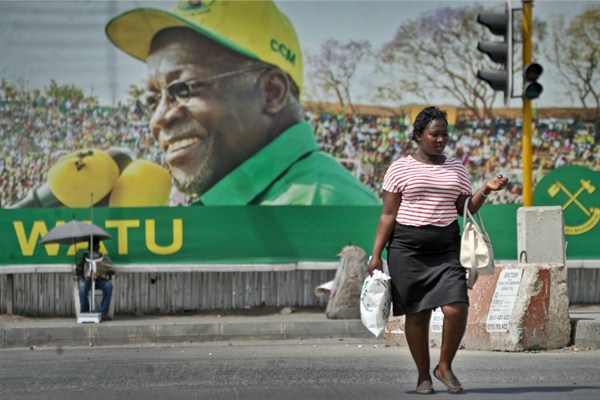After winning elections a year ago, Tanzania’s new president, John Magufuli, quickly lived up to the nickname he acquired while he was the minister of works, “the Bulldozer.” He launched investigations against corruption that led to the sacking of senior officials in the Tanzania Revenue Authority, the Dar es Salaam Ports Authority and the head of the Prevention and Combating of Corruption Bureau, among others. He sought to introduce a note of austerity within government, canceling expensive Independence Day celebrations and banning government officials from making unnecessary foreign trips. He was photographed picking up litter outside State House, the president’s official residence, and exhorting fellow Tanzanians to keep their neighborhoods clean. All this came within just his first three months in office.
The frenetic pace of activity led to its own meme, as Tanzanians posted captioned photos or tweets asking “what would Magufuli do?” At home and abroad, his government was widely praised. Amid donor adulation for Magufuli’s action on corruption, his government received little international flak over the deeply flawed election process in Zanzibar, where the ruling party, Chama Cha Mapinduzi or CCM, was accused of canceling the poll when it became clear they were not going to win. Among Tanzanians, Magufuli’s popularity soared.
And yet a year later, he stands accused of an autocratic turn. Tanzanians posting largely innocuous criticisms online, through Facebook and WhatsApp, have been detained and charged under the Cybercrimes Act that was passed last year. Last month, five people were charged with insulting the president; over the summer, another person was sentenced to prison or a large fine for the same offense. In January, the government banned the publication of a weekly Kiswahili-language newspaper, Mawio, for allegedly inciting violence. Its offending article had suggested the opposition had won the Zanzibar elections—a point that many international observers would agree with—and not unreasonably predicted a rise in political unrest in the run-up to contested new elections in March. The government further contributed to growing fears that it was seeking to stifle opposition debate by ending live broadcasts from the country’s parliament.

